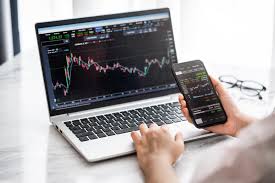
The forex market, short for foreign exchange, is the global marketplace where currencies are bought and sold. With an estimated daily trading volume exceeding $7.5 trillion (according to the Bank for International Settlements), it stands as the largest and most liquid financial market in the world. For new traders, stepping into this dynamic market might seem daunting, but understanding the fundamental aspects of Forex can provide a strong starting point to make informed decisions.
What is Forex Trading?
At its core, Forex trading involves the exchange of one currency for another. These transactions occur in currency pairs, such as EUR/USD (Euro/US Dollar) or GBP/JPY (British Pound/Japanese Yen). Each pair has a “base” currency listed first followed by the “quote” currency, which defines how much of the quote currency is needed to purchase one unit of the base currency.
Forex trading operates 24 hours a day during weekdays due to the different time zones covering major financial hubs like London, New York, and Tokyo. This feature allows traders worldwide to participate in the market at their convenience.
Key Terminology for New Traders
To effectively begin trading, it’s essential to understand common Forex terms:
• Pips: A pip is the smallest price movement in a currency pair, typically representing 0.0001 for most pairs. Traders use pips to measure price changes and assess profits or losses.
•
• Bid and Ask: The bid is the price at which a buyer is willing to purchase a currency, while the ask is the price a seller is prepared to accept.
•
• Spread: The difference between the bid and ask price is known as the spread. Narrow spreads often indicate higher market liquidity.
•
• Leverage: This allows traders to control a larger position with a smaller deposit. However, while it magnifies potential profits, it also increases risks. It’s vital to use leverage thoughtfully.
•
Why Do People Trade Forex?
The accessibility of Forex trading appeals to both beginners and experienced investors. Unlike stock markets, where trading sessions are dictated by specific hours, the Forex market’s near-round-the-clock operations are flexible for diverse schedules. Beyond accessibility, Forex trading provides opportunities for speculative strategies, hedging against economic uncertainties, and diversifying financial portfolios.
Tips Before You Start Trading
For new traders, preparation is the foundation of sustainable success. Here are essential tips for getting started:
• Educate Yourself
•
The first step in Forex trading is building a solid foundation of knowledge. Free online resources, webinars, and demo accounts from brokers are excellent ways to practice strategies and study market dynamics.
• Start with a Demo Account
•
Most trading platforms offer demo accounts where you can trade virtual money in real-time market conditions. It’s an ideal way to learn how Forex works without incurring financial risk.
• Manage Risk Wisely
•
Practicing risk management is crucial in Forex trading. Set stop-loss orders to determine the maximum loss you’re willing to accept on a trade. Good risk management involves preserving your capital so you can continue trading long-term.
• Keep an Eye on Currency Correlations
•
Understanding how currency pairs correlate is another important aspect. For instance, some pairs like EUR/USD and USD/CHF often move in opposite directions due to their economic ties.
The Journey to Forex Proficiency
Joining the Forex market is an engaging experience that holds both challenges and opportunities. By mastering basic concepts, staying disciplined, and continually bolstering your expertise through reliable resources, beginners can transition to confident traders. Taking the time upfront to focus on education and practice will set you on the path toward informed and measured trading decisions.